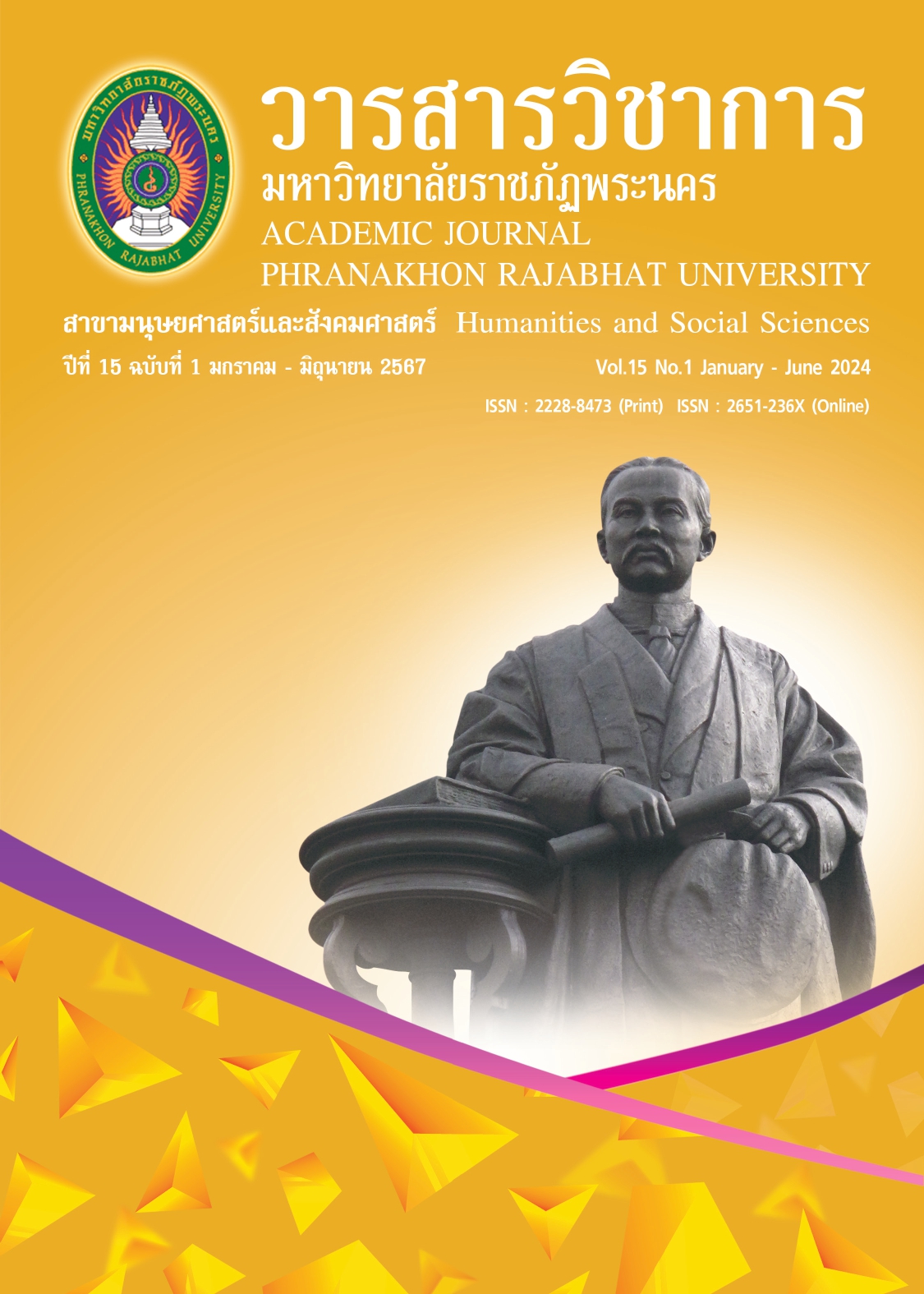LABOR’S SKILL DEVELOPMENT STRATEGY FOR SMALL BUSINESS (SMEs) IN CHIANG RAI PROVINCE TO SUPPORT ECONOMIC DEVELOPMENT IN THE MEKONG SUB-REGION
Keywords:
Labor Skill Development, Strategic Development, SME Business, Mekong Sub-regionAbstract
This article aims to: 1) propose strategies for labor skill development for small-sized enterprises (SMEs) in Chiang Rai province by conducting focus group discussions with stakeholders at the policy level regarding labor skill development in the province, and 2) draft a strategy for labor skill development by analyzing the current situation of the labor force in the province (SWOT Analysis), analyzing the current strategic position of the labor force situation in the province (TOWS Matrix Analysis), and drafting a strategy for labor skill development for SMEs in the province to contribute to the economic development in Mekong Sub-region countries.
The findings have led to the following strategic issues: 1) enhancing the development of personnel capabilities to meet international standards, 2) developing a standard work system that supports international trade, 3) upgrading the information technology system to support production and investment trade, 4) improving the human resources development curriculum for production and service, and 5) integrating collaboration between government and private sectors in border areas.
References
HR-Ex.Asia. (2019). Moving Forward with Career Development. Retrieved from https://th.hrnote.asia/orgdevelopment/190510-career-development/ [2022, 15 Jun.]
Greater Mekong Sub-Region Secretariat. (2018). The Greater Mekong Subregion Economic Cooperation Program Strategic Framework 2030: A response to long-term challenges of the new decade. Retrieved from https://greatermekong.org/greater-mekong-subregion-economic-cooperation-program-strategic-framework-2030-response-long-term. [2021, 13 Jun.]
Lung, T. (2019). Guidelines for Development of Workforce in Manufacturing Industries in Support of “Thailand 4.0” Policies. Journal of Humanities and Social-sciences; Suvarnabhumi Institute of Technology, 5(1). 173-186. (In Thai).
Ministry of Labour. (2566). Policy, Vision, and Mission. Retrieved from http://mol.go.th. [2023, 10 Sep.]
Mongkhonsuebsakul, W. (2022). Guidelines for Driving Policy towards Developing Labor Skills to Support Changes in the Post-COVID-19 Era. Western University Research Journal of Humanities and Social Sciences. 8(1). 267-282. (In Thai).
Office of the National Economic and Social Development Council. (2020). Summary report of the implementation of the national strategy for the year 2020. Retrieved from http://nscr.nesdc.go.th. [2021, 11 Jun.]
The Federation Thai SME. (2018). Basic Principle of SME. Retrieved from https://smepoll.com/basicprincipleofsme/. [2021, 13 Jun.]
Triwet, P. (2016). The development of tourism cooperation strategies into practice in the Mekong sub-region of the upper-northern provinces 2. Journal of Academic Social Sciences, 9(2), 1-10. (In Thai)
Watanasuksin, K. (2019). Skill Development Strategy of Vocational Development School Skilled private labor in the upper northeastern region of Thailand. Mahachulanakhonthat Journal, 6(8), 4016-4029.
Downloads
Published
How to Cite
Issue
Section
License
Copyright (c) 2023 Academic Journal Phranakhon Rajabhat University

This work is licensed under a Creative Commons Attribution-NonCommercial-NoDerivatives 4.0 International License.
"บทความวิชาการในวารสารฉบับนี้ ถือเป็นความรับผิดชอบของผู้เขียนเท่านั้น"
สงวนลิขสิทธิ์ตามพระราชบัญญัติลิขสิทธิ์




